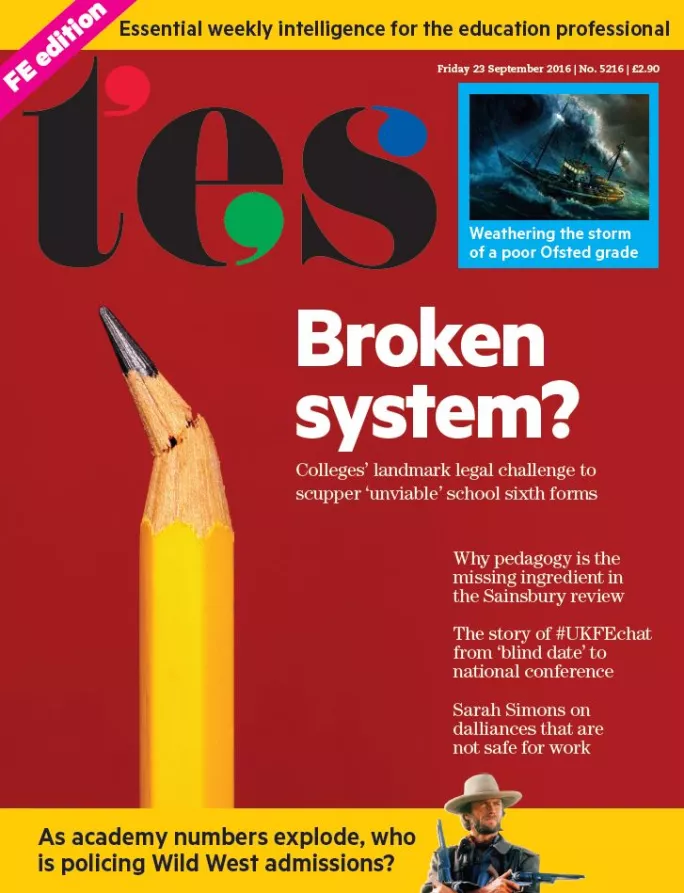In this week’s TES Further, Mark Dawe, chief executive of the Association of Employment and Learning Providers, writes that the insistence on GCSE resits for those who don’t achieve a C is “damaging” for the learning experience of many FE students (article free for subscribers). This year, pass rates for those retaking their English and maths GCSEs were just 27 per cent and 30 per cent, respectively. While many still staunchly defend the practice, Dawe has his doubts: “Do we really want to write off 122,000 maths students as failures when there is an alternative route pen to them in the form of functional skills?”
Bouncing back
Judith Doyle, principal and chief executive of Gateshead College - and FE leader of the year at last year’s TES FE Awards - explained how she helped her college to bounce back after its second “requires improvement” judgement (article free for subscribers). She says that committed colleagues and putting teaching first were two things that helped her to turn her college from zero into hero - and bag an award in the process.
Meanwhile, Bill Lucas, director of the University of Winchester’s Centre for Real-World Learning, writes that pedagogy is the missing ingredient in the Sainsbury Review (article free for subscribers). Although the review is welcome, Bill writes, it must go further to truly meet learners’ needs.
FErret
FErret reveals (article free for subscribers) that the responsibility for education and training provision in prisons will move from the Department for Education to the Ministry of Justice. This move, FErret reckons, could improve the odds of Dame Sally Coates’ recommendations from her review of prison education getting up and running - could this be a stepping stone to the eventual creation of a modular GCSE?
The nuclear option
FE editor Stephen Exley reveals that the DfE faces a landmark legal challenge over the opening of an “unviable” school sixth form. The Association of Colleges (AoC) and Havering Sixth Form College have jointly instigated a judicial review after a regional schools commissioner approved a bid by a school to open a new sixth form in September 2017 - one that, the AoC argues, fails to meet the DfE guidelines released in March.
David Hughes, chief executive of the AoC, explains why he decided to launch legal action. In March, updated guidance set out five tests that should be passed before a new sixth form would be approved. But this application seemed to fail all of them, according to the AoC. “That’s when we considered the ‘nuclear option’ and decided, somewhat reluctantly, to jointly launch with the college a judicial review against the decision,” Hughes writes.
Simons says
TES columnist Sarah Simons salutes UKFEchat - an online community that connects like-minded people who want to talk about all things FE. From its first real-life gathering, which Simons says “was like a massive blind date”, the movement has continued to grow into the sectoral monolith that it is today.
In this week’s column, Simons also offers some sage advice to those thinking of getting involved in an FE college romance (article free for subscribers). Although she makes no judgements about affairs of the heart (or the pants) while at college, she says it’s important to know who to confide in.
All this and much, much more in this week’s TES Further.
FE SPECIAL OFFER: click here to try out a TES Further Education subscription for just £1 for 4 weeks
Want to keep up with the latest education news and opinion? Follow TES FE News on Twitter, like us on Facebook and follow us on LinkedIn





